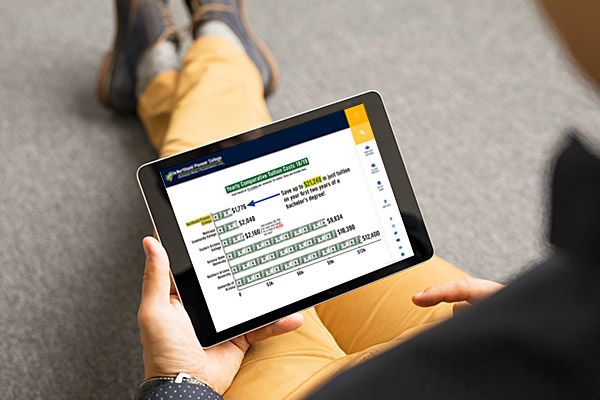These men and women run headlong into danger, as others are running away, to protect and save lives and property. It is a job where you perform an essential community service while earning a rewarding salary and, generally, employee benefits that may include a pension package. NPC provides a quality fire science degree in northeastern Arizona.
The NPC Fire Science program offers a dual approach for training in the firefighting field: 1) basic instruction for the new recruit and 2) continuing education programs for current fire service professionals serving in area fire departments seeking further training and job promotions.
Using a fire academy approach, through classroom instruction and hands-on training, recruits study fire-fighting and fire-prevention techniques, local building codes, and emergency medical procedures. You'll learn how to fight fires with standard equipment, including axes, chain saws, fire extinguishers and ladders. Rigorous physical training is an integral part of the instruction. Basic wildland firefighting techniques are covered, allowing graduates to test for their "red card," required to work as "hot shots" and on wildland engine companies.
- Our courses, based on National Fire Protection Association (NFPA) standards, satisfy the Northeast Arizona Fire Chiefs Association Task Book training requirements for promotion eligibility.
- For more information about this program, please contact an NPC Academic Advisor. Also see the current NPC College Catalog and class schedule.
Labs and Classrooms
Training takes place at the Jake Flake Emergency Services Training Center in Taylor. NPC's program features a burn tower, flash chamber, ventilation training trailer and 10-acre defensive driving track where live-training classes are conducted in a "fire academy" setting.
- Several continuing education courses are now offered online.
- Training is also scheduled at local fire departments.
Work Environment
When on the scenes of fires and other emergencies, the work can be very dangerous. When not on the scene of an emergency, firefighters spend their time at fire stations, where they maintain equipment, train, sleep, eat and remain on-call during shifts that often last 24 hours. Many work more than 40 hours per week.
Not only is fighting fires dangerous and complex, as a firefighter you are frequently the first emergency personnel at the scene of a traffic accident or medical emergency and may be called upon to treat injuries or perform other vital functions. In addition, some firefighters work in hazardous materials units that are specially trained for the control, prevention and cleanup of dangerous substances.
Through cooperation with local fire departments, you’ll train to deal with these and other fire situations, as well as the use of specialized emergency equipment.
Job Outlook
Physically fit applicants with high test scores and paramedic training will have the best job prospects.
Potential Job Titles
Accreditation/Affiliations
NPC's program has been awarded Fire and Emergency Services Higher Education (FESHE) recognition, meaning students are certified by the National Fire Academy.
NPC's First Responder training programs, including fire science, paramedicine and law enforcement, were named among the Top 100 Colleges Where Grads Save Lives programs in the United States by Fire Science Online. The nonprofit organization reviewed more than 7,000 programs at 2,500 colleges before selecting the Top 100.
Locations
Contact Information
NPC Jake Flake Emergency Services Training Center
1840 Papermill Road
Taylor,
AZ 85939
NPC Fire Science
Northland Pioneer College
CONTACT AN NPC ADVISOR!
Receive in-person or virtual Academic Advising, register for classes, learn about how you can pay for college, and get the tools you need to become a successful student.














